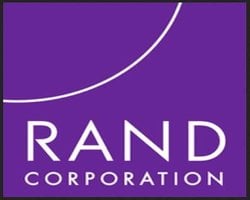A new study from the RAND Corporation, finds that the practice of Fair Value Accounting (FVA) probably did not help drive the 2008 financial crisis.
However, if implemented poorly, under weak regulatory oversight, both FVA and Historical Cost Accounting (HCA) can increase systemic risk in the financial sector by producing misleading information.
Lead author Michael D. Greenberg, a senior behavioral scientist at the RAND Corporation, says:
“The key question is not whether fair value accounting or historical cost accounting is better, but instead, how do you ensure that each is implemented properly?”
“When implemented poorly, both methods can be associated with systemic risk to the financial system,” he adds.
Fair Value Accounting (FVA) is where the value of assets and securities are revised on a regular basis – ideally by referring to current values of similar assets or securities established in a liquid market.
Historical Cost Accounting (HCA), on the other hand, records the value of an asset as the price it fetched when it was originally purchased – as if there had been no change in value since the date of acquisition.

Following the 2008 financial crisis, there has been much debate about the extent to which methods of valuation played a role in triggering the crisis.
For instance, some experts argue that FVA forced banks and financial institutions to write down the book value of assets in a spiral of devaluation, panic selling and loss of liquidity.
In their study report, Greenberg, a professor at the Pardee RAND Graduate School and director of the RAND Center for Corporate Ethics and Governance (CCEG), and colleagues, investigate the relationship between FVA and HCA and the risks they pose to the financial system.
By reviewing evidence from major empirical studies, they look at the various situations that use FVA and HCA and assess the role these accounting methods have played in financial crises, including the most recent one in 2008, the savings and loans crisis of the 1980s, and the debt crisis that occurred in the 1970s in less developed nations.
They argue that from a better understanding of these methods, a number of insights about systemic risk emerge, such as:
- It is unlikely that FVA was a significant driver of the crisis in 2008.
- You can’t say that FVA is objectively “better” than HCA, or vice versa.
- Applied with discipline and rigour, both approaches provide useful information in different contexts.
- But, applied sloppily, without firm regulatory oversight, both FVA and HCA can yield misleading data, which leads to accumulation of risk, both within institutions and systemically across the financial sector.
The study culminates in a set of recommendations on how to improve FVA and HCA and the information they produce, which should provide more effective protection against systemic risk in the banking sector.
Greenberg says policymakers should make it a priority to improve the quality of both FVA and HCA information in financial statements, and they should consider strengthening institutional governance and control, which in turn encourages higher quality of accounting practice in financial institutions.
Accountants kept books at historical cost for centuries. Then they adopted fair value accounting, which measures assets and liabilities according to estimates of their present value.

